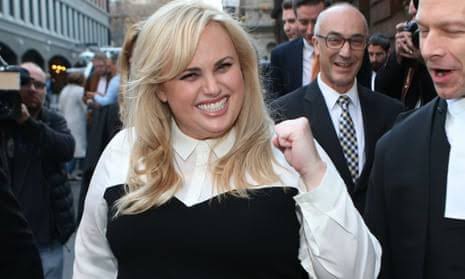Chakraborty was devastated by the loss of her boyfriend Sushant Singh Rajput, who was found dead on June 14, 2020. Initially, the Mumbai police attributed his death to mental health issues; however, after a police complaint from Rajput's family accusing Chakraborty of theft and implicating her in his demise, the actress became the target of a relentless media campaign. Faced with accusations of being manipulative and invoking misogynistic slurs, she battled public and media scrutiny, eventually serving time in prison.
In response to the investigation results, her lawyer Satish Maneshinde asserted that there had been a comprehensive inquiry and emphasized the cost of the media trial, calling it unwarranted. The backlash from her situation has been notable, leading to calls from the entertainment fraternity for the media to apologize for the unjust allegations that have plagued Chakraborty for years.
The case highlights broader issues of media responsibility and the treatment of women in high-profile scenarios. Activists and commentators have voiced that Chakraborty's ordeal should serve as a potent reminder of the dangers of knee-jerk judgments propelled by sensationalist news coverage. While she is now seen in a new light, some propose her pursuing legal action against those who peddled false narratives about her role in Rajput's tragic end, although the path to justice through the overloaded Indian judiciary is daunting.
Prominent voices from the industry have joined the call for accountability from the media, with recent discussions even making their way into parliamentary conversations. As Rhea Chakraborty redefines her career with ventures like motivational speaking and clothing lines, the question remains whether those who contributed to her suffering will face consequences for their actions amidst a landscape defined by relentless news cycles and public outrage.
In response to the investigation results, her lawyer Satish Maneshinde asserted that there had been a comprehensive inquiry and emphasized the cost of the media trial, calling it unwarranted. The backlash from her situation has been notable, leading to calls from the entertainment fraternity for the media to apologize for the unjust allegations that have plagued Chakraborty for years.
The case highlights broader issues of media responsibility and the treatment of women in high-profile scenarios. Activists and commentators have voiced that Chakraborty's ordeal should serve as a potent reminder of the dangers of knee-jerk judgments propelled by sensationalist news coverage. While she is now seen in a new light, some propose her pursuing legal action against those who peddled false narratives about her role in Rajput's tragic end, although the path to justice through the overloaded Indian judiciary is daunting.
Prominent voices from the industry have joined the call for accountability from the media, with recent discussions even making their way into parliamentary conversations. As Rhea Chakraborty redefines her career with ventures like motivational speaking and clothing lines, the question remains whether those who contributed to her suffering will face consequences for their actions amidst a landscape defined by relentless news cycles and public outrage.




















